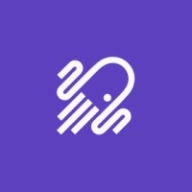

Acunetix and Check Point CloudGuard Code Security compete in the cybersecurity software category. Acunetix appears to have the upper hand in penetration testing, while CloudGuard stands out in cloud security management and integration.
Features: Acunetix has a user-friendly design, efficient reporting features that streamline security assessments, and strong penetration testing capabilities. Check Point CloudGuard Code Security excels in automation capabilities, real-time analytics, and integration into broader cloud security environments.
Room for Improvement: Acunetix could reduce false positives, improve manual testing assistance, and refine its reporting and licensing models. Check Point CloudGuard Code Security could benefit from better documentation, more straightforward integration processes, and enhanced support services.
Ease of Deployment and Customer Service: Acunetix offers primarily on-premises deployment with responsive 24/7 support but sometimes experiences delays. Check Point CloudGuard Code Security favors cloud-centric deployment options and has active support, though it could enhance centralized documentation.
Pricing and ROI: Acunetix's recent price increases challenge its cost-effectiveness, despite showing significant ROI by improving internal security processes. Check Point CloudGuard Code Security offers affordable initial setup pricing but requires a more refined licensing model to better manage costs.
It saves a significant amount of time by covering attack surfaces.
I have seen a return on investment, as Acunetix helps reduce the man-days and effort needed for scanning bulk applications through automated assessments.
I have seen a return on investment with Acunetix, including time saved and cost reduction, because it provides us threats on our web application servers.
For high-severity issues, they reach out within two to three hours, and for critical issues, a response is received within 15 minutes.
The technical support from Invicti is very good and fast.
Support staff not being familiar with the problem.
I would rate the support for Check Point CloudGuard Code Security as good because we can quickly email support about any problems we encounter, and they reply instantly to provide help.
Acunetix can handle increasing workloads and more applications easily.
Acunetix's scalability for my growing needs is great; it is a very scalable product compared to others.
I did not need to reach customer support because the product is very stable.
The main concern is related to false positives; Acunetix needs to work on identifying valid and invalid findings.
Acunetix should have better integration with newer tools such as GitHub and Azure DevOps.
I believe Acunetix can improve customer support, as the dedicated support staff are often unfamiliar with problems and troubleshooting, leading to communication gaps that delay issue resolution.
All the features we have on the firewall on the on-premises side, we also have under CloudGuard such as IPS, Anti-Bot, and all these blades are set up in our CloudGuard.
The pricing cost is affordable for small and mid-sized organizations, and when compared to Checkmarx, it is significantly affordable, as Checkmarx is quite expensive.
We secured a special licensing model for penetration testing companies, which is cost-effective.
The pricing of Acunetix is pretty expensive and could be improved.
Its most valuable role is in enhancing security by identifying potential vulnerabilities efficiently.
The solution is excellent at detecting SQL injection and cross-site scripting vulnerabilities.
The best feature Acunetix offers is the centralized dashboard and the quality of reports it generates, which includes various options for selecting reports and developer options for directly sharing the reports with developers.
The most valuable features of Check Point CloudGuard Code Security include our approach to manage it via the management we have on-premises, and we also deploy the same extension management of CloudGuard to manage all the virtual systems on Azure.
| Product | Market Share (%) |
|---|---|
| Acunetix | 7.4% |
| Check Point CloudGuard Code Security | 2.3% |
| Other | 90.3% |


| Company Size | Count |
|---|---|
| Small Business | 15 |
| Midsize Enterprise | 7 |
| Large Enterprise | 17 |
| Company Size | Count |
|---|---|
| Small Business | 12 |
| Midsize Enterprise | 4 |
| Large Enterprise | 6 |
Acunetix Web Vulnerability Scanner is an automated web application security testing tool that audits your web applications by checking for vulnerabilities like SQL Injection, Cross site scripting, and other exploitable vulnerabilities.
Check Point CloudGuard Code Security provides real-time protection and compliance enhancement across diverse infrastructures, streamlining security management with automated processes and accurate threat detection.
Designed to support multiple code languages and cloud environments, Check Point CloudGuard Code Security offers seamless integration with existing workflows. By implementing intuitive dashboards and role-based access control, it enhances operational efficiency while minimizing human error. The system secures identities, API keys, and configurations, aligning with legal frameworks to strengthen infrastructures against modern threats. However, improvements are needed in documentation, multilingual support, and easier integration with SIEM. Attention to geolocation, logging, and learning curves also requires enhancement.
What are the key features of Check Point CloudGuard Code Security?Across the tech industry, Check Point CloudGuard Code Security is applied to enhance cloud and application security, providing thorough protection against vulnerabilities and breaches. By integrating security across cloud environments and data centers, organizations achieve improved practices and adherence to compliance standards.
We monitor all DevSecOps reviews to prevent fraudulent reviews and keep review quality high. We do not post reviews by company employees or direct competitors. We validate each review for authenticity via cross-reference with LinkedIn, and personal follow-up with the reviewer when necessary.